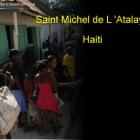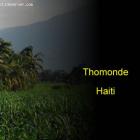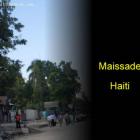ADVERTISEMENT
Ferrier - Haiti Observer Blog
Ferrier, Haiti Observer Blog. Read the following articles about Ferrier
Fort-Liberte In The Nord Department Of Haiti
Fort-Liberté is located in Haiti's Nord-Est-Department. In Haiti, it is the oldest country and Haiti got its independence here on November 29,1803. The Dominican Republic is located close to its border. Around 11,465 people inhabit the place. The language spoken in the region is Creole. Hurricanes, storms and sunshine are all experienced bringing changes in temperature.
How It Got Its Name
Indians inhabited the region originally after which the Spanish colonists came. In 1578 they found the city of Bayaja and in 1605 abandoned it. In 1732 the French reoccupied it as Fort-Dauphin. In 1764, Spanish forces captured it and in 1801 shortly, after independence was declared in 1803, it was restored to the French.
Ferrier, originally named Maribeaux
Ferrier is a small cityship contained within the Fort Liberté Arrondissement, part of Nord Est Department. Located in north Haiti, it was established in 1932 and originally named Maribeaux. It was raised to the level of a cityship in 1946 and is comprised of a single commune, Maribaboux.
Farmers in Ferrier engage in sustainable farming. They produce oranges, tobacco, and limes, as well as livestock, to provide for themselves. The land in Ferrier is inadequately irrigated, but is a good place to grow rice, and has received funding from non-government organizations (NGO) to do so.
Infrastructure in Ferrier is underdeveloped. No road or electrical systems exist there, and the town is without an airport. If NGO workers want to travel out of the area, they must access airports miles away, the nearest being Les Cayes, and furthest, Port-au-Prince International Airport. The people in Ferrier also lack a hospital. To get medical attention, they must get to the nearest medical facility located 30 miles out of town in Milot.
Our objective is to share with you news and information about Haiti and the people of Haiti. Traditions, habits and the way we were or grew are alive in this site. We highly recommend that you Subscribe to our Newsletter and also share with us some of the things that are memorable and made us unique people.

 Saint Michel de L 'Atalaye
Saint Michel de L 'Atalaye  Haitians are a Proud People
Haitians are a Proud People  Thomonde, Haiti
Thomonde, Haiti  Maissade, Haiti
Maissade, Haiti  Newsletter
Newsletter